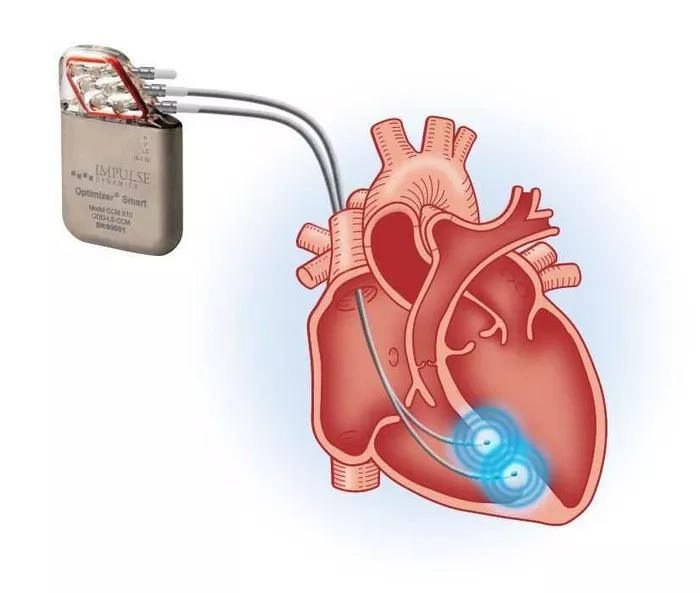Chronic Condition Management (CCM) therapy has emerged as a critical approach in healthcare for managing and improving outcomes for patients with chronic conditions. This innovative therapy combines various strategies and interventions to provide comprehensive care and support to individuals facing long-term health challenges. In this article, we delve into the intricacies of CCM therapy, exploring its components, benefits, challenges, and the impact it has on patients’ lives.
What is CCM Therapy?
CCM therapy is a holistic approach to managing chronic conditions such as diabetes, hypertension, heart disease, chronic obstructive pulmonary disease (COPD), and others. It goes beyond traditional medical treatments by incorporating elements of patient education, self-management strategies, lifestyle modifications, and continuous monitoring to achieve optimal health outcomes.
Components of CCM Therapy
1. Patient Education: One of the fundamental aspects of CCM therapy is empowering patients with knowledge about their condition. This includes understanding the causes, symptoms, treatment options, and self-care techniques. Education sessions are often conducted by healthcare providers, nurses, or educators specialized in chronic disease management.
2. Care Coordination: CCM therapy emphasizes the importance of coordinated care among healthcare professionals, including primary care physicians, specialists, nurses, pharmacists, and allied health professionals. This collaborative approach ensures that patients receive comprehensive and integrated care across various healthcare settings.
3. Self-Management Strategies: Patients are encouraged to take an active role in managing their condition through self-care practices. This may involve medication adherence, following a healthy diet, regular exercise, stress management techniques, and monitoring key health indicators such as blood pressure, blood glucose levels, or lung function.
4. Technology Integration: CCM therapy leverages technology solutions such as telehealth, remote monitoring devices, mobile apps, and electronic health records (EHRs) to facilitate communication, data collection, and real-time monitoring of patients’ health status. These technological advancements enable timely interventions and personalized care plans.
5. Behavioral Health Support: Mental and emotional well-being play a crucial role in managing chronic conditions. CCM therapy may include access to behavioral health services such as counseling, cognitive-behavioral therapy (CBT), support groups, and resources for managing anxiety, depression, or stress related to the chronic illness.
Benefits of CCM Therapy
The implementation of CCM therapy offers a wide range of benefits for both patients and healthcare providers:
1. Improved Health Outcomes: By focusing on proactive management and preventive measures, CCM therapy can lead to better control of chronic conditions, reduced complications, and enhanced overall health and quality of life for patients.
2. Enhanced Patient Engagement: Engaging patients as partners in their care empowers them to make informed decisions, adhere to treatment plans, and adopt healthy lifestyle behaviors, leading to more successful outcomes and satisfaction with their healthcare experience.
3. Cost Savings: Effective management of chronic conditions through CCM therapy has the potential to reduce healthcare utilization, hospital readmissions, emergency room visits, and overall healthcare costs, particularly for high-risk patients with complex needs.
4. Streamlined Care Delivery: The coordinated and integrated approach of CCM therapy streamlines care delivery processes, promotes continuity of care, reduces fragmentation, and ensures that patients receive timely and appropriate interventions across the care continuum.
5. Data-Driven Decision Making: The use of technology in CCM therapy allows for real-time data collection, analysis, and monitoring of patients’ health status, enabling healthcare providers to make data-driven decisions, adjust treatment plans as needed, and identify trends or patterns that may require intervention.
Challenges and Considerations
While CCM therapy offers significant advantages, there are also challenges and considerations to be addressed:
1. Resource Allocation: Implementing CCM therapy requires adequate resources, including trained healthcare personnel, technology infrastructure, patient education materials, and reimbursement models that support value-based care and care coordination efforts.
2. Care Coordination Complexity: Coordinating care among multiple providers and healthcare settings can be complex, requiring effective communication channels, care plans, protocols, and collaboration tools to ensure seamless transitions and continuity of care.
3. Patient Adherence and Engagement: Encouraging patients to actively participate in their care and adhere to treatment plans, lifestyle modifications, and self-management strategies can be challenging and may require ongoing education, support, and motivation.
4. Data Privacy and Security: The use of technology in CCM therapy raises concerns about data privacy, security, confidentiality, and compliance with regulatory requirements such as the Health Insurance Portability and Accountability Act (HIPAA) to protect patients’ health information.
5. Health Equity and Access: Ensuring equitable access to CCM therapy services, especially for underserved populations, requires addressing barriers such as socioeconomic factors, cultural diversity, language barriers, health literacy, and geographic disparities in healthcare resources.
Conclusion
CCM therapy represents a paradigm shift in healthcare delivery, emphasizing a patient-centered, proactive, and holistic approach to managing chronic conditions. By integrating education, care coordination, self-management, technology, and behavioral health support, CCM therapy aims to improve health outcomes, enhance patient engagement, reduce healthcare costs, and promote a higher quality of life for individuals living with chronic illnesses. However, addressing challenges such as resource allocation, care coordination complexity, patient adherence, data privacy, and health equity remains crucial for the successful implementation and sustainability of CCM therapy programs.


